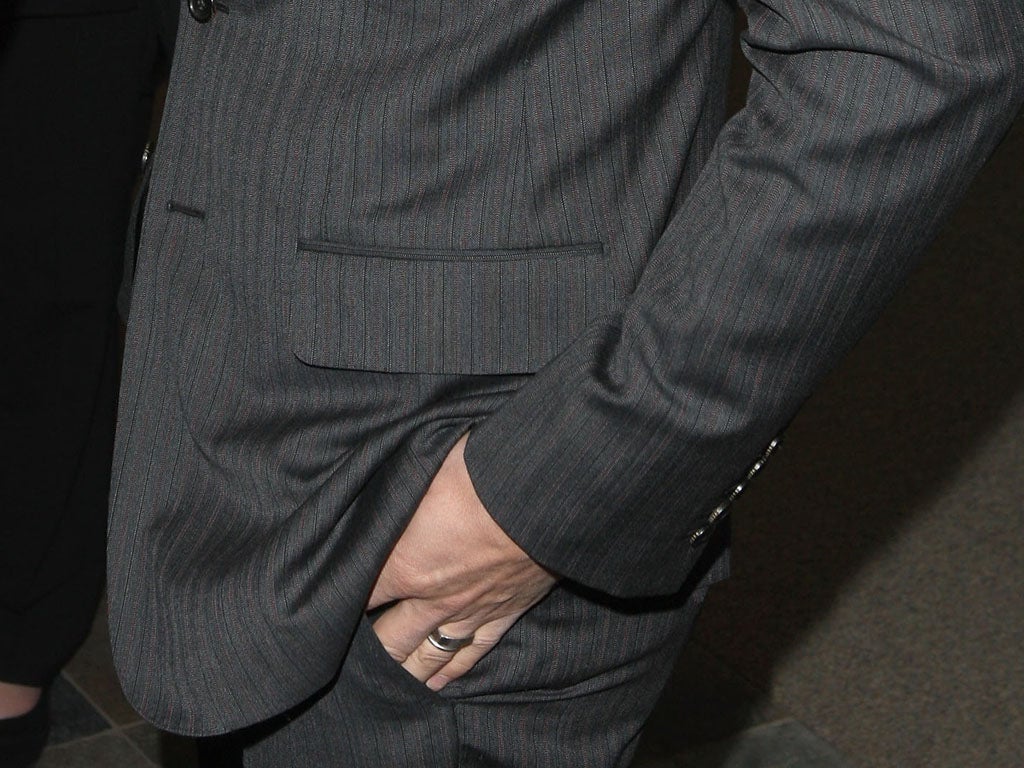Will nobody confront the hackers and blaggers in pin-striped suits?
The two explanations put forward by Soca for its inaction have the marks of having been thought up at the last minute


The Serious Organised Crime Agency (Soca) shows a surprising naivety in the reasons it gives for declining to investigate the banks, pharmaceutical companies, lawyers and many other seemingly respectable firms that have been using the services of corrupt private investigators. Why the executives of Soca should lend themselves to what is a cover-up I shall come to later.
What is Soca’s reasoning? Here is what the agency says: “The fact that they [the clients] have been identified does not mean that they placed their instructions in the knowledge that the private investigators or their agents would act unlawfully.” So let us imagine what is likely to occur when a “respectable” firm approaches private investigators for help.
It would ask how successful the private investigators had been in discovering unpublished information in the past. In response, the private investigators would give bullish descriptions of their work, how they had discovered this and that and how, in the face of substantial difficulties, they come back with the goods.
Then surely the “respectable” firm would ask how exactly such excellent results had been obtained. Perhaps no clear answer would be given, just nods and winks, or perhaps the private investigators would boast about their skills in phone hacking, blagging, suborning public officials and so on. Either way, it would become obvious to the “respectable” firm that to be successful, this sort of business generally involves the use of illegal methods.
Indeed, the chances are the transaction would be exactly like purchasing stolen goods. You don’t steal the objects yourself but by buying them you facilitate the crime. Staff of the respectable firms don’t hack phones or suborn public officials, but by buying information discovered by such methods they also facilitate crime. They and their employers are parties to criminal activities and should be treated as such.
Soca gives a second reason why it has sat on evidence of possible wrongdoing for many years without doing anything. “The information ... if published might … substantially undermine the financial viability of major organisations by tainting them with public association with criminality.” To which the immediate answer is that these major organisations should have thought of that before dealing with disreputable private investigators.
In any case, it is a strange rule, unknown to the principles of justice, that one of the factors to be considered before launching an inquiry into possible criminal wrongdoing should be the suspect’s financial viability. It was not, for instance, a question that was raised with regard to newspapers when inquiries into alleged phone hacking began to be made. Nor is such collateral damage a consideration applied to individual citizens when they become the target of police inquires.
As Neil Wallis, former deputy editor of the News of the World, told this newspaper on Thursday: “When I was arrested and questioned over alleged phone hacking, none of the evidence produced was anything remotely other than circumstantial at the very strongest. I spent 19 nightmare months unemployable on bail before being cleared. So why is it that executives on the Soca list are not being treated in the same way? Because I can’t see the difference between me and a posh lawyer who worked for companies who allegedly paid private investigators to break the law. Except, of course, I’m a tabloid journalist and apparently not a respectable businessman.” This says all that needs to be said about Soca’s second reason for not acting. It is as flimsy as the first.
However, when intelligent men and women, as I take Soca’s senior executives to be, act irrationally, an explanation is required. In this regard, I find illuminating the notion that conscious reasoning can function rather like the spokesperson of a leading politician, who automatically justifies any position on behalf of his or her boss. This is an analysis made by Jonathan Haidt in his recent book, The Righteous Mind. He argues that when we have formed a view about the rightness of a particular state of affairs, often led by intuition or instinct, then reasoning can take us to almost any conclusion we want to reach to justify our belief.
In this light, the two explanations put forward by Soca for its inaction have the marks of having been thought up at the last minute. When first heard, they sound convincing, but a moment’s reflection shows how thin they are. They are, in a way, soundbites.
My guess, and that is all it can be, is that the underlying instinct that explains Soca’s actions is the belief that the middle classes are fundamentally honest, with a few sad exceptions, and that nothing should be done that suggests otherwise. The appalling behaviour of some bankers is ignored; the crimes for which leading pharmaceutical firms in the US have been convicted are glossed over: the bribery routinely used by businesses operating in the Middle East is unacknowledged. We are fundamentally honest, aren’t we? Don’t ever say otherwise in case there are consequences we wouldn’t like.
Only three middle-class activities are excluded from this protective circle. The first is politics – MPs cheating on their expenses is, unfortunately, something to be expected. The second is religion. Hypocritical behaviour by church members, especially priests, shouldn’t be covered up. And the third area that fails to benefit from the assumption of fundamental honesty is the press. And that is how the world works, I am afraid.

Join our commenting forum
Join thought-provoking conversations, follow other Independent readers and see their replies